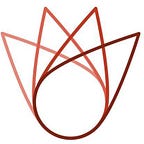What we are reading
A weekly column on the stories on media innovation that are intriguing, engaging or alarming us
Digiday | How the world’s biggest media companies fared through the ongoing crisis in Q2
Media owners with diversified revenue lines were best-positioned to weather the coronavirus crisis as it continued into the summer. Earnings reports for the June quarter reveal the extent to which the advertising market plummeted — with many media owners reporting double-digit revenue declines. The threat of pullback on Facebook didn’t appear to dent its revenue in the quarter ended June 30. Advertising revenue rose 10% in its fiscal second quarter to $18.3 billion.
CNN | Zimbabweans stage solo social media protests against human rights abuse in the country
Zimbabweans are staging solo protests on social media to challenge human rights abuse in the southern African country. Award-winning author and filmmaker Tsitsi Dangarembga posted an image on her Twitter page calling on protesters to make a placard with the viral #ZimbabweanLivesMatter hashtag on it. The image also added that solo protesters should take pictures with the Zimbabwe flag and placard to post online for awareness.
IJnet | New app helps journalists connect with scientists
Reporters covering scientific topics such as the COVID-19 pandemic sometimes struggle to find the right sources. Meanwhile, many of the scientists sharing valuable insights on social media lack a wide audience. A new digital tool developed in Brazil aims to bring these two groups together. The platform, supported by ICFJ, is currently in beta. In partnership with Brazilian science journalism agency Bori, it features the latest updates from more than 1,300 verified scientists and scientific organizations that are tweeting in English, Portuguese and Spanish, Spagnuolo said.
Twitter | New labels for government and state-affiliated media accounts
Twitter Inc will label the accounts of state-affiliated media outlets, their senior staff and some key government officials, the company said in a blog post. The social media company defined state-affiliated media as those where the state exercises editorial control through financial resources or political pressure, or control over production and distribution. The labels will at first be applied only to the officials from countries that are permanent members of the U.N. Security Council: China, France, Russia, Britain, and the United States. Twitter said the personal accounts of heads of states will not be labeled as there is public awareness of those individuals.
